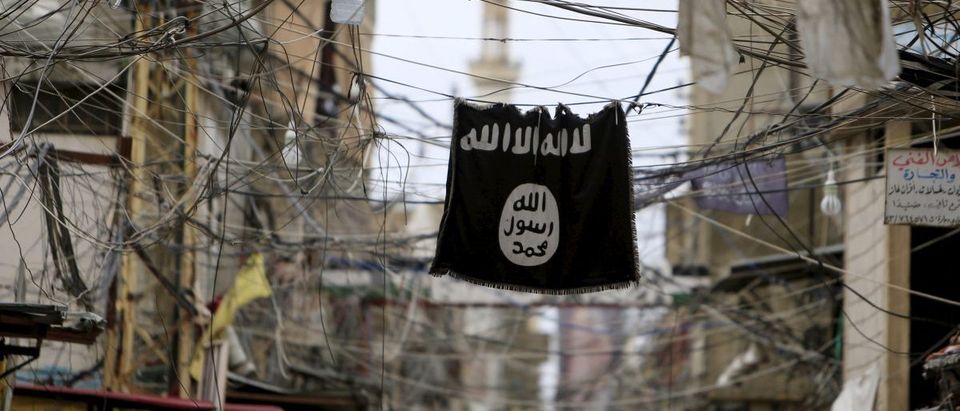After the bombing on 23rd Street, the NYPD did a splendid job of locating and neutralizing another bomb on 27th Street. Likewise, New Jersey police did an outstanding job of tracking down, confronting, and arresting Ahmad Rahami, the terrorist responsible for the bombings in Manhattan and in Seaside Park, New Jersey.
Our knowledge about what to do after terrorist attacks seems to have improved, but our ability to prevent them may have declined.
Take the NYPD. Up until recently, it had an excellent record of uncovering and foiling jihad plots. That’s because the NYPD had a proactive policy of surveilling and even infiltrating mosques, Muslim student groups, and other potential centers of radicalization. Then in 2014, under pressure from Muslim activist groups who called the program discriminatory, the surveillance program was shut down, and with it an important vehicle for preventing terror attacks. Two years before the NYPD was hamstrung, a similar shutdown occurred on the national level. In 2012, in response to pressure from Muslim advocacy groups (sound familiar?), the White House ordered a purge of training materials used by the FBI, the Department of Defense, and a dozen other national security agencies. From that point on, investigative agents were forbidden to make any connection between terrorism and Islam.
In a sense, the whole nation has been hamstrung by the politically correct narrative about Islam. We’ve been forced to limp along, shackled to the idea that Islam is a wonderful religion that’s been given a bad name by a handful of extremists. According to the narrative, there is a threat, but it is confined to terrorist organizations and lone wolves—none of whom have anything to do with Islam. Moreover, the narrative denies the existence of the doctrine of jihad warfare, even though the terrorists tell us repeatedly that jihad for the sake of Allah is what motivates them. For the jihadists, Allah’s eternal command is, to borrow a phrase from Tolkien, the “one ring to rule them all…”
This unifying doctrine should be kept in mind when we think about lone wolves. There is a good deal of discussion about whether Ahmad Rahami acted alone or whether he was connected to some international group. The same question is being asked about the Muslim who stabbed ten people at a Minnesota mall. But, in the unlikely event that both men acted alone, they were still connected to a global community of true believers whose highest aspiration is to follow the commands of Allah—to the death if need be.
The lone wolves, in short, are part of a wolf pack. They may act alone, but lone wolves the world over act in remarkably similar ways. They shout “Allahu akbar,” they try to kill or maim as many people as possible, and they are prepared to die in the process. The lone wolf stabber in Israel, the lone wolf axe-wielder in Germany, and the lone wolf gunman in Orlando are all bound together by a common belief system and a common hope in a paradisiacal afterlife.
The lone wolves commonly provide clues when they are becoming radicalized, but because some of these signs are religious in nature, they are often ignored by investigators who have been taught that religion is not a factor in terror. For instance, Ahmad Rahami made four trips to Afghanistan and Pakistan—countries where Islamic beliefs and practices are much the same as they were in the seventh century. After he returned from a trip a few years ago, acquaintances noticed that he had become more devout, and he could often be seen praying in the back of the store where he worked. Omar Mateen, the Orlando shooter, followed a similar trajectory. He made two trips to Mecca and was also observed to be increasingly devout in the months before his attack. The actions of Tamerlan Tsarnaev, one of the Boston Marathon bombers, also fits the pattern. After his return from Dagestan, he became markedly more devout and often urged friends to pray more.
These sudden turns to religion on the part of these three lone wolves were noted by others (in two instances by the FBI) and basically ignored.
The Homeland Security slogan is “if you see something, say something.” But that only seems to apply if you spot a pressure cooker with wires sticking out of it. If you’re a patron in a fast food joint and you notice that an employee newly returned from Pakistan is now praying several times a day, you know you’d better keep it to yourself or you’ll be smeared as an “Islamophobe.” The same holds true for law enforcement officers. They understand that if they report certain kinds of suspicious behaviors, they might be pegged as bigots, and might well be reprimanded or reassigned.
The “one ring” that binds Muslim terrorists all over the world is Allah’s command to wage jihad against unbelievers. But we have our own “one ring” that rules us all, and serves to keep us in the dark in regard to Islam. It’s the doctrine of political correctness. Our society is in virtual bondage to it. “One Ring to rule them all. One Ring to find them. One Ring to bring them all and in the darkness bind them.”
William Kilpatrick is the author of the forthcoming book The Politically Incorrect Guide to Jihad, releasing September 26 by Regnery Publishing.


